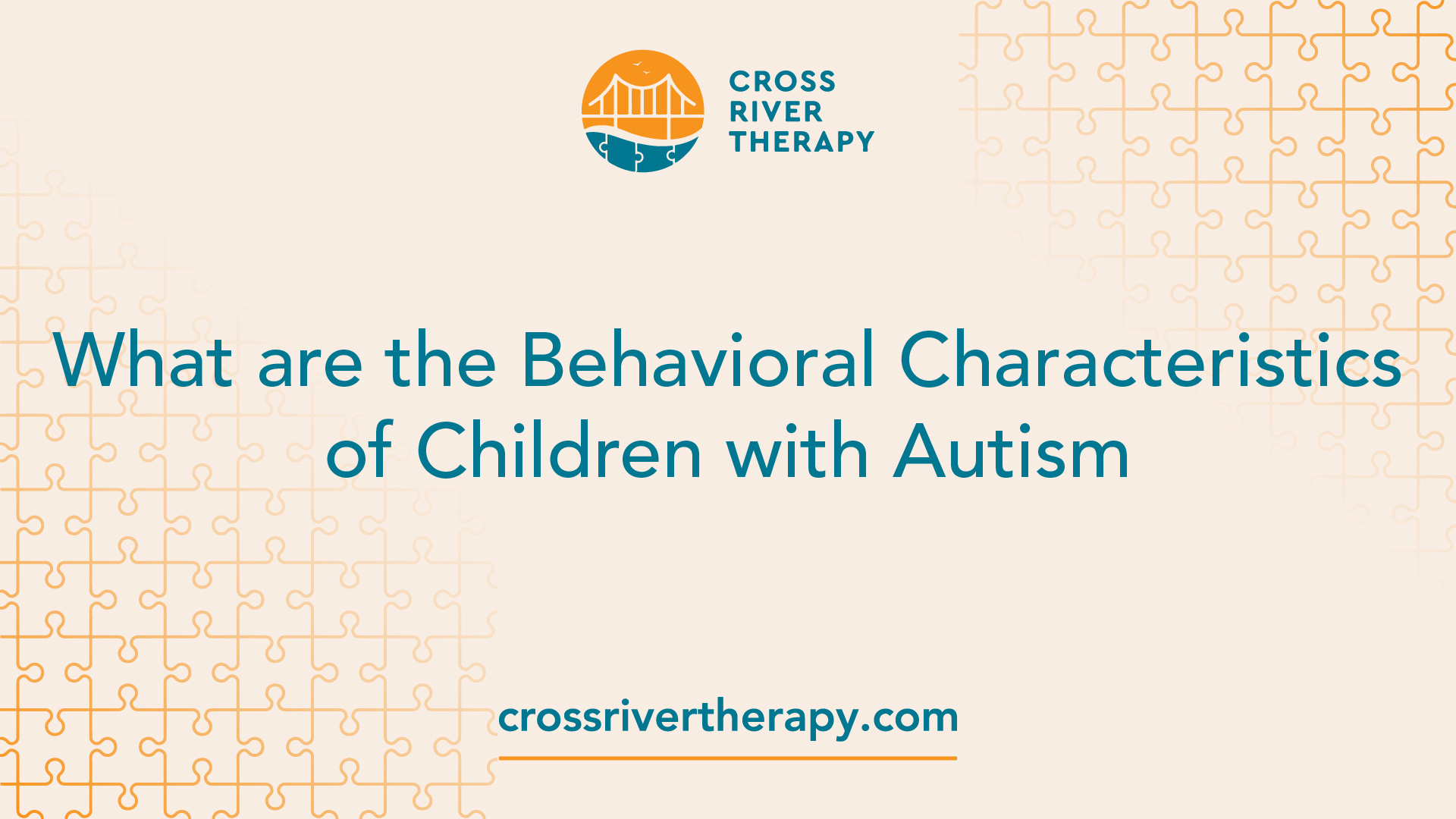Turning challenges into growth using Autism Behavioral Therapy tools
Turning challenges into growth using Autism Behavioral Therapy tools
Blog Article
Key Signs and Symptoms to Recognize in People With Behavioral Autism
When you experience someone with behavioral autism, recognizing essential signs and signs is crucial. You may observe difficulties in social interactions and communication, along with a strong need for routines. Additionally, sensory level of sensitivities can result in overwhelming experiences. Comprehending these characteristics can improve your support and interventions, yet there's more to uncover concerning just how these habits show up in everyday circumstances. Allow's explore what these indications truly look like.
Difficulties in Social Interactions
When you connect with someone on the autism range, you might see they struggle with social signs and communication. These difficulties can make social interactions really feel frustrating for them.
In addition, you may find that they favor regimens and familiar setups, which can limit their readiness to participate in new social scenarios. When they do involve, they may talk regarding their interests in wonderful detail without seeing if you're interested. This can cause prejudiced conversations that leave you feeling separated. Understanding these challenges can help you come close to interactions with empathy and perseverance, cultivating a more comfortable setting for both of you.
Problem With Verbal and Non-Verbal Interaction

Identifying these indications is necessary, as it aids you much better assistance and involve with individuals on the autism spectrum. By comprehending their communication challenges, you can promote much more meaningful connections and give a more helpful setting.
Repeated Actions and Regimens
Interaction challenges usually come with other signs of autism, such as repetitive actions and a solid preference for regimens. You could notice that people with autism frequently participate in certain, repeated activities, like hand-flapping, shaking, or repeating phrases. These actions can offer convenience and a feeling of control in a commonly overwhelming globe.
Routines are similarly important; lots of individuals flourish when they comply with an organized schedule. You may discover that changes to these regimens can lead to substantial distress. If they have an everyday routine of eating breakfast at a particular time or complying with a particular path to institution, any kind of interruption can cause stress and anxiety.
Identifying these patterns helps you understand their actions and offer assistance. By suiting their demand for routine and allowing recurring activities, you can develop an extra comfortable environment that reduces their obstacles.
Sensory Level Of Sensitivities

Common Sensory Triggers
Sensory sensitivities can considerably affect life for individuals with autism, as certain stimuli often trigger frustrating reactions. Usual sensory triggers consist of loud sounds, brilliant lights, and strong smells. You may see that sudden sounds, like sirens or alarms, trigger stress and anxiety or distress. In a similar way, fluorescent illumination in shops can feel awkward and severe. Structures can additionally play a significant role; rough textiles or certain food textures might be excruciating for you. Furthermore, crowded areas can overwhelm your detects, making it hard to unwind or focus. Understanding these triggers can assist you manage your atmosphere better. By being mindful of what affects you, you can take steps to decrease pain and enhance your daily experiences.
Behavioral Responses Explained
Comprehending your behavior responses to sensory sensitivities is vital, as they frequently expose exactly how you communicate with the globe. You might likewise find on your own looking for details sensory experiences, like deep stress or peaceful environments, to aid ground on your own. Identifying these patterns helps you understand your requirements much better and can guide how you interact them to others.
Coping Approaches Introduction
Recognizing your sensory level of sensitivities is simply the very first step; currently it's time to explore coping techniques that can assist you manage those experiences properly. Begin by creating a sensory toolkit customized to your requirements. This might include noise-canceling earphones, fidget playthings, or relaxing scents. Developing an organized regimen can additionally provide predictability, reducing stress and anxiety around sensory overload. Take breaks in a quiet room to regroup when you feel overloaded. Practicing mindfulness strategies such as deep breathing can help ground you in the minute. Furthermore, connect your demands with those around you; having supportive close friends and family members can make a massive difference. Bear in mind, discovering what functions finest for you may require time, so be open and patient to trying brand-new approaches. Bonuses
Limited Interests and Emphasis
While lots of individuals develop a vast array of rate of interests, those with autism typically demonstrate limited passions and an extreme focus on certain topics. You could notice that someone with autism can spend hours diving right into their preferred topic, whether it's a specific kind of train, a certain movie, or a scientific idea. This intense focus isn't simply a leisure activity; it can end up being a central part of their identity and social interactions.
You might discover that conversations focus on these rate of interests, and they may struggle to take part in more comprehensive topics. For them, these concentrated rate of interests offer convenience and a feeling of proficiency. While it's vital to encourage exploration of new topics, respecting their enthusiasms is equally vital. By understanding and recognizing these restricted passions, you can cultivate an encouraging setting where they really feel valued and recognized, permitting for more purposeful connections and communications.
Emotional Regulation Troubles
People with autism often face obstacles in psychological see page law, which can be influenced by their extreme emphasis on details passions. You might discover that when an individual is deeply participated in a preferred task, they can experience solid emotions, whether exhilaration or irritation. When points don't go as planned., this strength often makes it difficult for them to move gears or manage their sensations - Autism Therapist.

Variability in Developmental Turning Points
When it pertains to developmental turning points, you'll see that individuals with autism typically reveal a variety of irregularity. Some might strike milestones in a timely manner, while others may hang back or progression at a various pace. You could see a child excel in language skills yet struggle with social communications. This variance can be confusing, as traditional standards don't always use.
It's necessary to acknowledge that each individual's trip is distinct. Observing these patterns can assist you understand their strengths and requires better.
Frequently Asked Questions
Just How Is Autism Diagnosed in Kid and Adults?
To detect autism in kids and adults, professionals evaluate behavior, communication skills, and social communications. If a private satisfies the requirements for autism range condition., they usually use standardized tests, interviews, and monitorings to figure out.
Exist Different Sorts Of Autism Range Disorders?
Yes, there are different kinds of autism range disorders, consisting of Asperger's disorder and pervasive developmental disorder-not or else specified. Each kind varies in severity and characteristics, so comprehending these differences can assist you far better support people with autism.
What Therapies Work for People With Autism?
When thinking about effective therapies for people with autism, you'll discover options like Applied Habits Analysis, speech therapy, and work-related treatment. Each method can help enhance interaction, social abilities, and everyday working customized to specific requirements.
Can Individuals With Autism Lead Independent Lives?
Yes, people with autism can lead independent lives. With the ideal assistance, find this skills training, and sources, you can assist them create self-sufficiency, manage daily jobs, and prosper in different atmospheres, promoting their freedom.
How Can Family Members Support Enjoyed Ones With Autism?
You can sustain your liked ones with autism by developing a structured environment, encouraging their passions, exercising persistence, cultivating interaction, and advertising social abilities. Celebrate their achievements, no matter exactly how tiny, and construct a helpful area.
Although numerous individuals on the autism spectrum can utilize and understand language, they usually face significant difficulties with both spoken and non-verbal interaction. Identifying these indications is vital, as it helps you much better support and involve with individuals on the autism range. You could discover that individuals with autism frequently involve in specific, repeated actions, like hand-flapping, rocking, or duplicating expressions.Sensory sensitivities can significantly affect daily life for people with autism, as certain stimuli frequently activate overwhelming responses.When it comes to developmental turning points, you'll observe that individuals with autism commonly reveal a wide array of variability.
Report this page